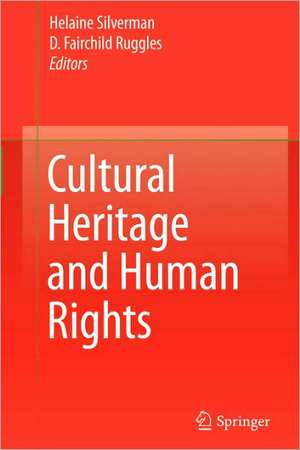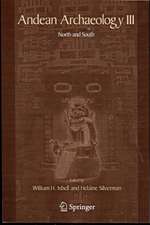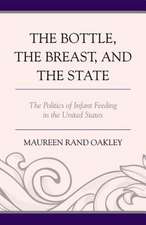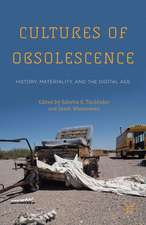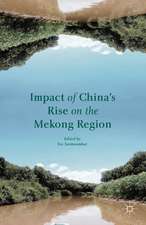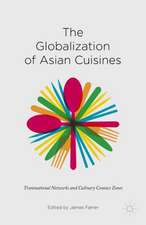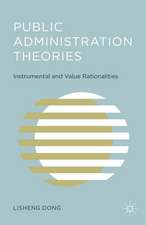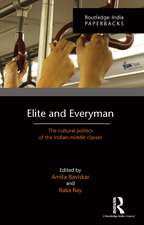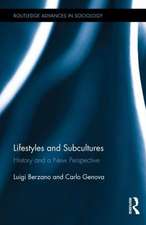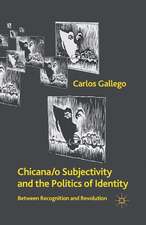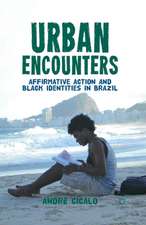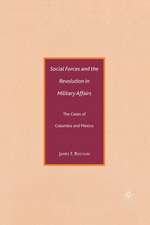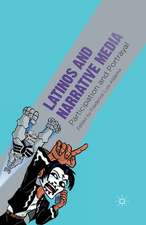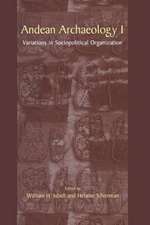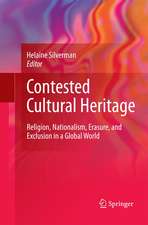Cultural Heritage and Human Rights
Editat de Helaine Silverman, D. Fairchild Rugglesen Limba Engleză Paperback – 14 oct 2008
| Toate formatele și edițiile | Preț | Express |
|---|---|---|
| Paperback (1) | 954.01 lei 6-8 săpt. | |
| Springer – 14 oct 2008 | 954.01 lei 6-8 săpt. | |
| Hardback (1) | 892.28 lei 6-8 săpt. | |
| Springer – 27 noi 2007 | 892.28 lei 6-8 săpt. |
Preț: 954.01 lei
Preț vechi: 1163.42 lei
-18% Nou
Puncte Express: 1431
Preț estimativ în valută:
182.64€ • 190.56$ • 153.10£
182.64€ • 190.56$ • 153.10£
Carte tipărită la comandă
Livrare economică 13-27 martie
Preluare comenzi: 021 569.72.76
Specificații
ISBN-13: 9780387765792
ISBN-10: 0387765794
Pagini: 206
Ilustrații: X, 206 p.
Dimensiuni: 155 x 235 x 12 mm
Greutate: 0.69 kg
Ediția:2007
Editura: Springer
Colecția Springer
Locul publicării:New York, NY, United States
ISBN-10: 0387765794
Pagini: 206
Ilustrații: X, 206 p.
Dimensiuni: 155 x 235 x 12 mm
Greutate: 0.69 kg
Ediția:2007
Editura: Springer
Colecția Springer
Locul publicării:New York, NY, United States
Public țintă
ResearchDescriere
In today’s world, there seems to be no corner of the world that has not been affected by globalization – for good and for bad. While the world becomes more hegemonized socially and culturally, local communities are fighting to preserve their way of life as part of their heritage. Travel and cultural institutions use this “uniqueness” to promote travel and tourism; and while this brings in revenue and exposure, cultural heritage sites that were preserved by virtue of their isolation are now being severely damaged and even destroyed. At the same time, there is a growing awareness that while this unique heritage is used to define a community, society or nation, it also can be a basis for conflict.
The volume addresses a deeply political aspect of heritage preservation and management as it relates to human rights. Social and community advocates assert that heritage is necessary for the articulation and preservation of cultural identity. The display of heritage monuments and performance can be a strategy for asserting minority identity in the face of majority pressure – as well as a tool for resistance and the expression of difference.
Conversely, the erasure of cultural expressions—such as buildings, monuments, language, religion, and social practices—is a powerful tool in warfare and political regulation. In the assault on human lives and political autonomy, the cultural history and values of a community are also attacked, destroying not only individuals but the very fabric of society.
Is there a universal right to the free expression and preservation of cultural heritage, and if so, where is that right articulated and can it be protected? How is the notion of “heritage” used variously to unite and divide communities? Who defines cultural heritage and who should control stewardship and the benefits of cultural heritage?
Cultural Heritage and Human Rights, the first volume in the Cultural Heritage in a Globalized World series, use these issues and questions to contemplate cultural heritage and human rights. The cases presented are world-wide with their implications presented on a global level. This interdisciplinary volume brings together contributors from such diverse fields as: history, culture studies, anthropology, urban and regional planning, archaeology, gender studies, landscape architecture, heritage and museum studies, political economy, and legal studies. It will be of interest to scholars and practitioners in fields that are affected by heritage, globalization and social/cultural studies.
The volume addresses a deeply political aspect of heritage preservation and management as it relates to human rights. Social and community advocates assert that heritage is necessary for the articulation and preservation of cultural identity. The display of heritage monuments and performance can be a strategy for asserting minority identity in the face of majority pressure – as well as a tool for resistance and the expression of difference.
Conversely, the erasure of cultural expressions—such as buildings, monuments, language, religion, and social practices—is a powerful tool in warfare and political regulation. In the assault on human lives and political autonomy, the cultural history and values of a community are also attacked, destroying not only individuals but the very fabric of society.
Is there a universal right to the free expression and preservation of cultural heritage, and if so, where is that right articulated and can it be protected? How is the notion of “heritage” used variously to unite and divide communities? Who defines cultural heritage and who should control stewardship and the benefits of cultural heritage?
Cultural Heritage and Human Rights, the first volume in the Cultural Heritage in a Globalized World series, use these issues and questions to contemplate cultural heritage and human rights. The cases presented are world-wide with their implications presented on a global level. This interdisciplinary volume brings together contributors from such diverse fields as: history, culture studies, anthropology, urban and regional planning, archaeology, gender studies, landscape architecture, heritage and museum studies, political economy, and legal studies. It will be of interest to scholars and practitioners in fields that are affected by heritage, globalization and social/cultural studies.
Cuprins
Cultural Heritage and Human Rights.- Connotations, Conflicts, Conundrums, Communities.- Closing Pandora's Box: Human Rights Conundrums in Cultural Heritage Protection.- The Indo-Islamic Garden: Conflict, Conservation, and Conciliation in Gujarat, India.- Tourism, Cultural Heritage, and Human Rights in Indonesia: The Challenges of an Emerging Democratic Society.- Transnational Diaspora and Rights of Heritage.- Performing Slave Descent: Cultural Heritage and the Right to Land in Brazil.- Historical Disruptions in Ecuador: Reproducing an Indian Past in Latin America.- Plains Indians and Resistance to “Public” Heritage Commemoration of Their Pasts.- Empty Gestures? Heritage and the Politics of Recognition.- Archeology as Activism.- Genes and Burkas: Predicaments of Human Rights and Cultural Property.
Textul de pe ultima copertă
In today’s world, there seems to be no corner of the world that has not been affected by globalization – for good and for bad. While the world becomes more hegemonized socially and culturally, local communities are fighting to preserve their way of life as part of their heritage. Travel and cultural institutions use this "uniqueness" to promote travel and tourism; and while this brings in revenue and exposure, cultural heritage sites that were preserved by virtue of their isolation are now being severely damaged and even destroyed. At the same time, there is a growing awareness that while this unique heritage is used to define a community, society or nation, it also can be a basis for conflict.
The volume addresses a deeply political aspect of heritage preservation and management as it relates to human rights. Social and community advocates assert that heritage is necessary for the articulation and preservation of cultural identity. The display of heritage monuments and performance can be a strategy for asserting minority identity in the face of majority pressure – as well as a tool for resistance and the expression of difference.
Conversely, the erasure of cultural expressions—such as buildings, monuments, language, religion, and social practices—is a powerful tool in warfare and political regulation. In the assault on human lives and political autonomy, the cultural history and values of a community are also attacked, destroying not only individuals but the very fabric of society.
Is there a universal right to the free expression and preservation of cultural heritage, and if so, where is that right articulated and can it be protected? How is the notion of "heritage" used variously to unite and divide communities? Who defines cultural heritage and who should control stewardship and the benefits of cultural heritage?
Cultural Heritage and Human Rights, the first volume in the Cultural Heritage in a Globalized World series, use these issues and questions to contemplate cultural heritage and human rights. The cases presented are world-wide with their implications presented on a global level. This interdisciplinary volume brings together contributors from such diverse fields as: history, culture studies, anthropology, urban and regional planning, archaeology, gender studies, landscape architecture, heritage and museum studies, political economy, and legal studies. It will be of interest to scholars and practitioners in fields that are affected by heritage, globalization and social/cultural studies.
The volume addresses a deeply political aspect of heritage preservation and management as it relates to human rights. Social and community advocates assert that heritage is necessary for the articulation and preservation of cultural identity. The display of heritage monuments and performance can be a strategy for asserting minority identity in the face of majority pressure – as well as a tool for resistance and the expression of difference.
Conversely, the erasure of cultural expressions—such as buildings, monuments, language, religion, and social practices—is a powerful tool in warfare and political regulation. In the assault on human lives and political autonomy, the cultural history and values of a community are also attacked, destroying not only individuals but the very fabric of society.
Is there a universal right to the free expression and preservation of cultural heritage, and if so, where is that right articulated and can it be protected? How is the notion of "heritage" used variously to unite and divide communities? Who defines cultural heritage and who should control stewardship and the benefits of cultural heritage?
Cultural Heritage and Human Rights, the first volume in the Cultural Heritage in a Globalized World series, use these issues and questions to contemplate cultural heritage and human rights. The cases presented are world-wide with their implications presented on a global level. This interdisciplinary volume brings together contributors from such diverse fields as: history, culture studies, anthropology, urban and regional planning, archaeology, gender studies, landscape architecture, heritage and museum studies, political economy, and legal studies. It will be of interest to scholars and practitioners in fields that are affected by heritage, globalization and social/cultural studies.
Caracteristici
One of the first international volumes looking at how globalization has affected cultural heritage
Archaeologists and those involved with cultural heritage will find this and subsequent volumes of interest for its research being conducted and actual cases around the world in an “at risk” stage
For the researcher, institution and practitioner in this interdisciplinary area of work
Includes supplementary material: sn.pub/extras
Archaeologists and those involved with cultural heritage will find this and subsequent volumes of interest for its research being conducted and actual cases around the world in an “at risk” stage
For the researcher, institution and practitioner in this interdisciplinary area of work
Includes supplementary material: sn.pub/extras
